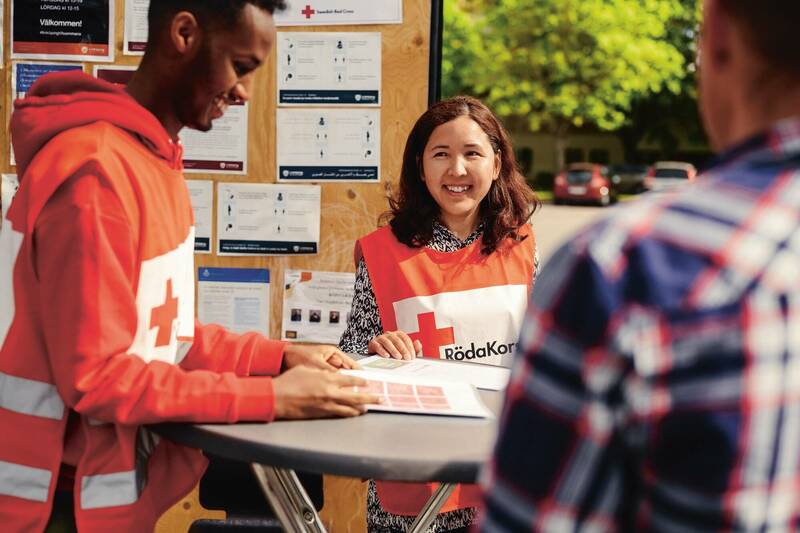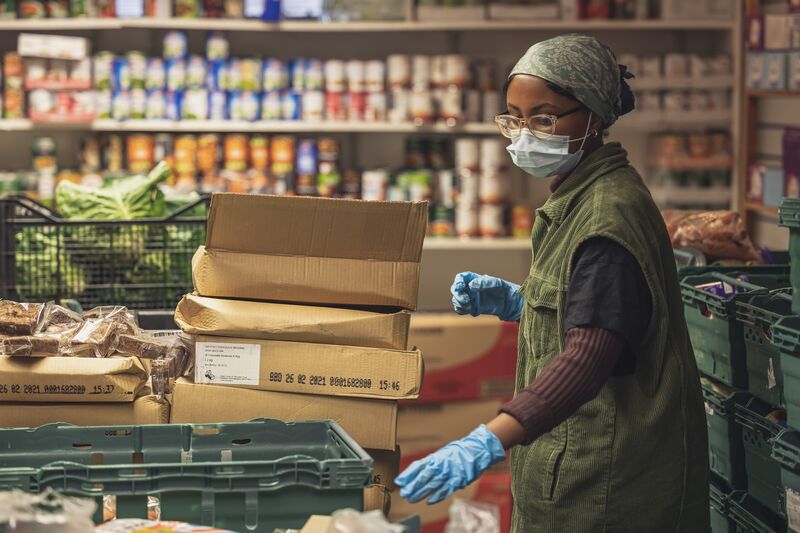New report: Migrants hit an “invisible wall” in accessing COVID-19 care and vaccines
A new report released today documents an “invisible wall” which has blocked migrants from accessing basic services since the start of the COVID-19 pandemic, and is now preventing them from accessing vaccines.
The report – Locked down and left out? Why access to basic services for migrants is critical to our COVID-19 response and recovery – draws on research carried out across all regions by the newly established Red Cross Red Crescent Global Migration Lab, hosted by Australian Red Cross and supported by the International Federation of Red Cross and Red Crescent Societies (IFRC) and the International Committee of the Red Cross (ICRC).
Jagan Chapagain, IFRC Secretary General said:
“Our research reveals what we are calling an ‘invisible wall’ that has blocked migrants – particularly those undocumented or in an irregular situation – from accessing basic services. Interestingly, this wall isn’t built mainly of policies designed to exclude migrants. Instead, it is made up of inadvertent exclusions, as well as the unintended consequences of efforts to contain and control the pandemic.”

The report shows that – while lockdowns and other measures were designed to control the spread of COVID-19 – in many contexts they inadvertently increased suffering among migrants. As a result of these restrictions, many migrants lost jobs and livelihoods and were subsequently unable to meet their most basic needs, leading to worrying levels of food insecurity, homelessness due to inability to pay rent, and worsening mental health conditions.
The research also found that, even in situations where migrants had been included in COVID-19 policies, their actual ability to access basic services was often constrained. For example, in some countries, migrants have been unable to access COVID-19 testing or treatment because they do not have a national identity or social security number. This is likely to also affect access to COVID-19 vaccinations, even if eligibility in law exists.
In other situations, migrants reported being hesitant to consult a doctor, seek treatment or, more recently, register for the COVID-19 vaccine due to fears of disclosing private information which may be shared with immigration authorities to arrest, detain or deport them. The fact that, in some countries, migrants need to register online to get COVID-19 vaccinations also contributes to exclusion, due to some migrants’ limited internet access or digital literacy and language barriers.

Mette Petersen, Director of the Red Cross EU Office said:
“The findings of this research are extremely worrying in the EU context, where migrants in an irregular situation often depend on humanitarian organisations to access essential services, such as health care. Yet today, the shrinking humanitarian space for migration work is challenging our members’ ability to reach migrants and address their vulnerabilities and needs.”
Ensuring that all migrants are included in COVID-19 vaccination strategies is key to ending the pandemic. The EU and Member States must guarantee that all migrants, irrespective of status, have safe and effective access to assistance and protection, including when delivered by humanitarian actors.
For more information:
For more information about the research and to download the report in several languages, visit the Global Migration Lab web page.
For more Red Cross recommendations towards the EU and Member States to safeguard principled humanitarian work with migrants, download Protecting the humanitarian space to access and support migrants.
To arrange interviews about the report, please contact:
In Geneva: Nathalie Perroud, +41 79 538 14 71, nathalie.perroud@ifrc.org
For more information about Red Cross EU Office views and expertise on EU migration issues, please contact:
In Brussels: Eva Oyon, +32 2 235 09 22, eva.oyon@redcross.eu
For media inquiries, please contact Eva Oyón on: eva.oyon@redcross.eu or +32 2 235 09 22

